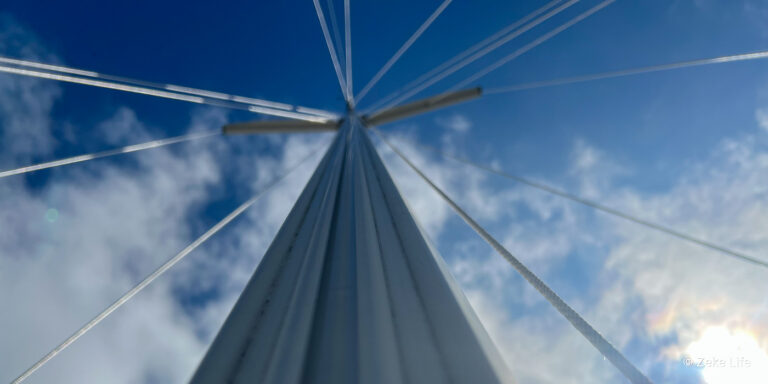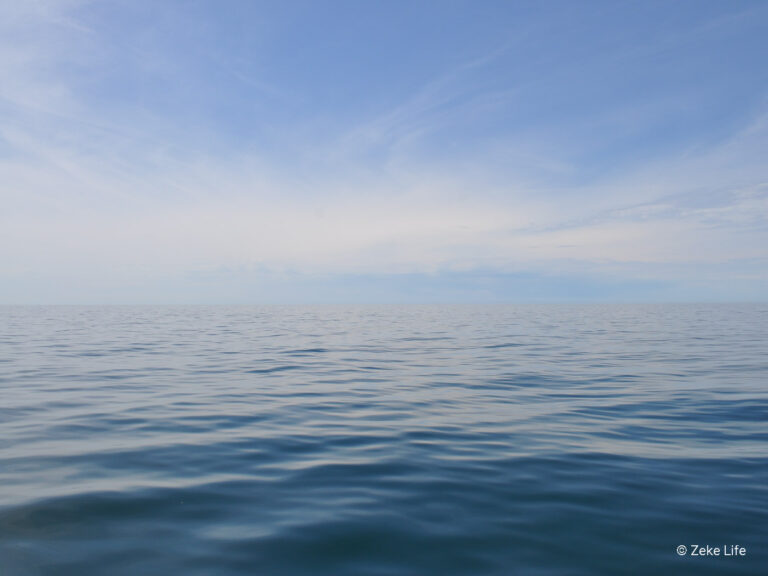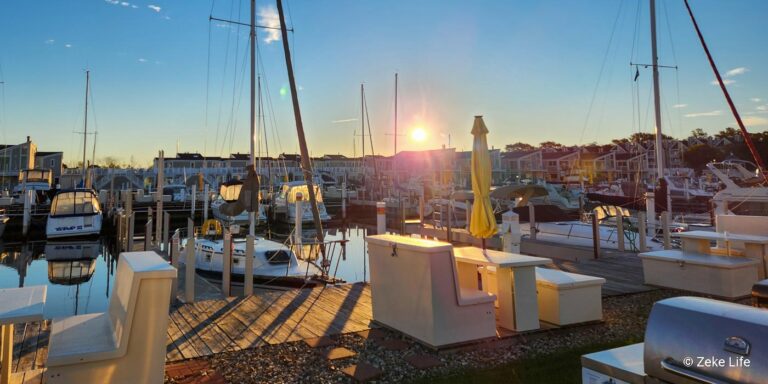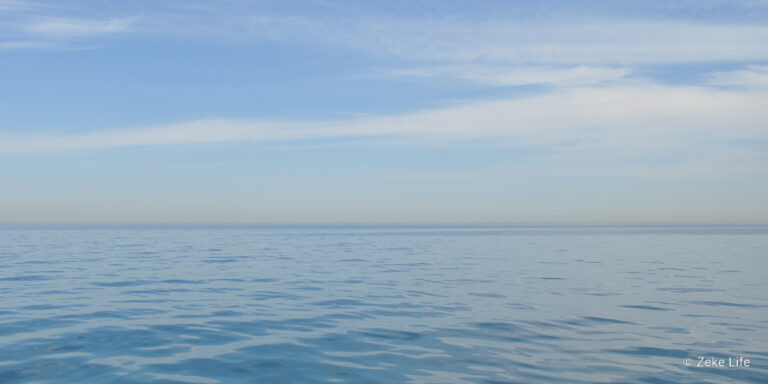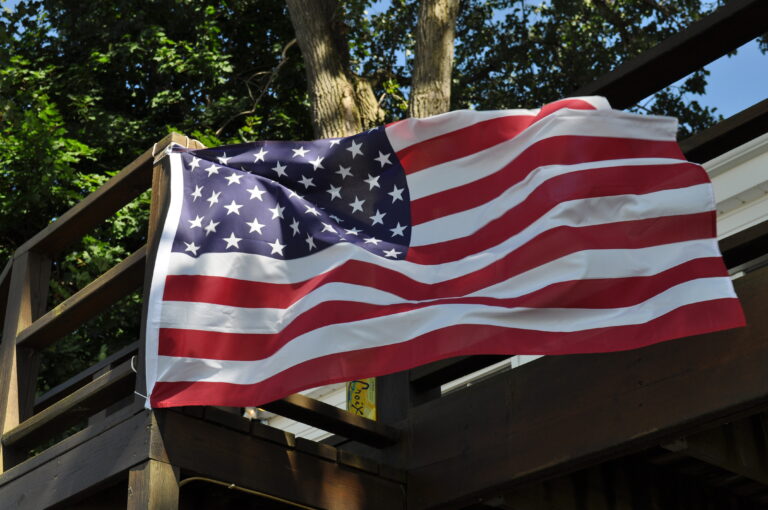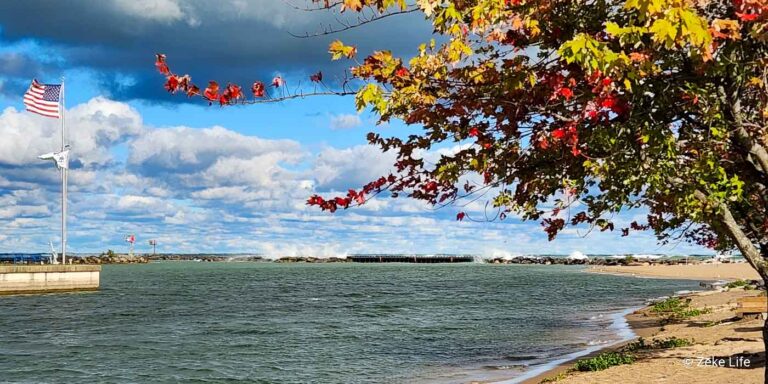This post may contain affiliate links*
Let’s Talk about it
Does anyone honestly think talking about toilets is interesting? Are marine toilets really any different than my home? This seems like a more personal discussion, right?!?
If you are tackling a similar project for your boat, I have included links to some of the products used in our retrofit at the end of this article. (jump to the end)
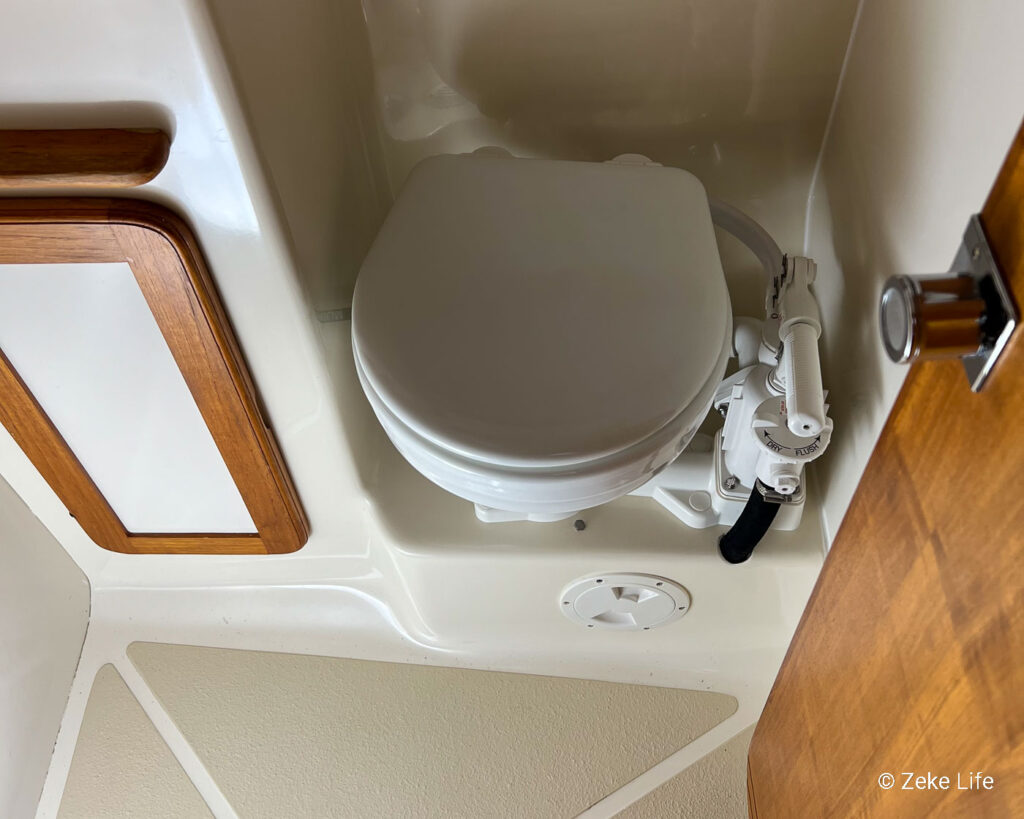
It ain’t no joke
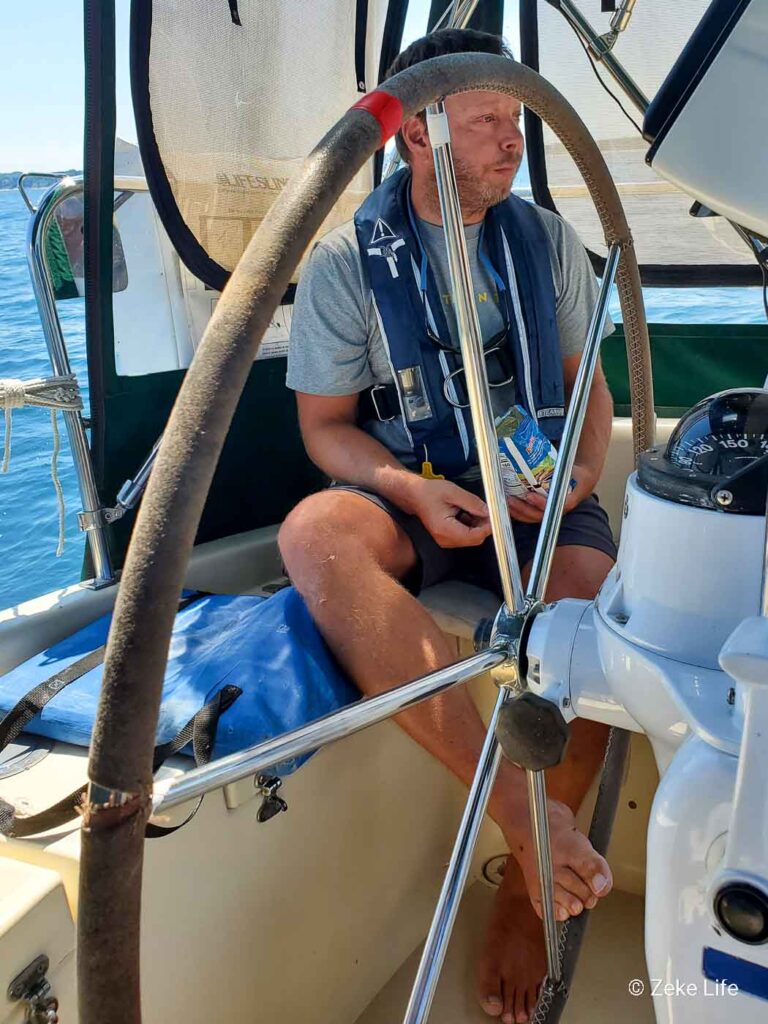
We believe toilets are a critical component to truly enjoying a day cruising in the sailboat on the water. When you gotta go, you gotta GO and all else in the world becomes a faint indescribable notion until things are “dealt with”.
All last season, we had only one functional toilet on the boat. The second head had a bad “joker valve” that would not allow pressure to build; therefore, no flushing or using that toilet. It was no joke! The working toilet kinda held pressure but you really had to work to flush it.
Our toilets were original from 1996 and after 27 years of faithful, diligent service, they needed to be retired – especially because we weren’t the ones using them the most! Eeeewwww!
Know the rules
Interesting note, on all the Great Lakes and within 3 miles of US waters we are not allowed to flush our toilets directly overboard! This seems like a good idea – especially when you think about all of the beaches that we’ve visited and swam in! Does this mean that once we’re outside of those restrictions you can flush directly overboard?!?!
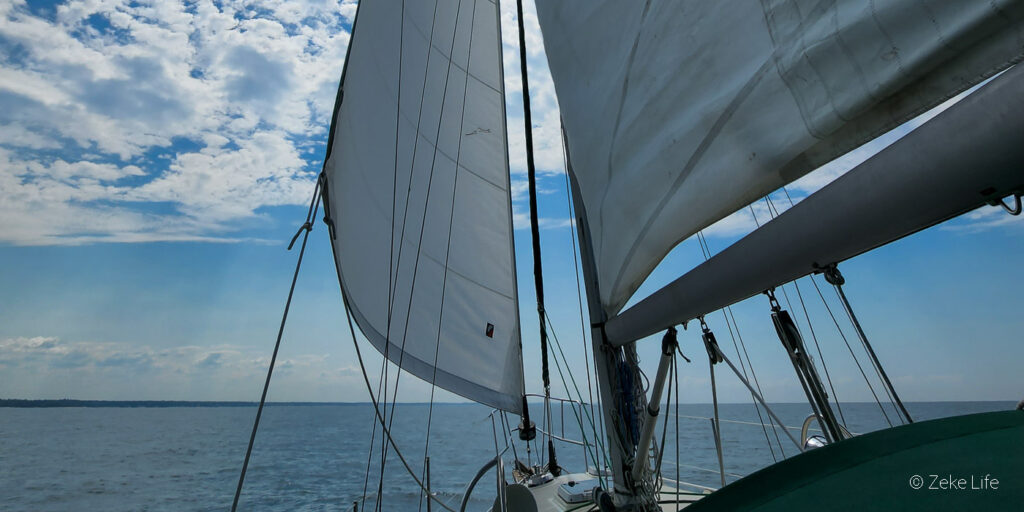
We’re not yet sure about the regulations in other countries’ waters but let’s assume they are similar in some fashion … I hope!
💪 Do it right!
On the Great Lakes, marine toilets have a secret enemy: Winter. When water freezes, it expands with so much force that pipes burst.
Our toilets pump water manually using a small hand pump on the toilet, water from the lake is pumped through the toilet and then into a holding tank as it is used. This is a very common and robust method for a boat of our size.
In order to properly winterize the toilet, you need to pump antifreeze throughout the entire system. My method to do this takes some effort and it seems easier to forget or hope for the best … as long as I pour some antifreeze in the toilet and flush a few times we are winterized, right? Nope!
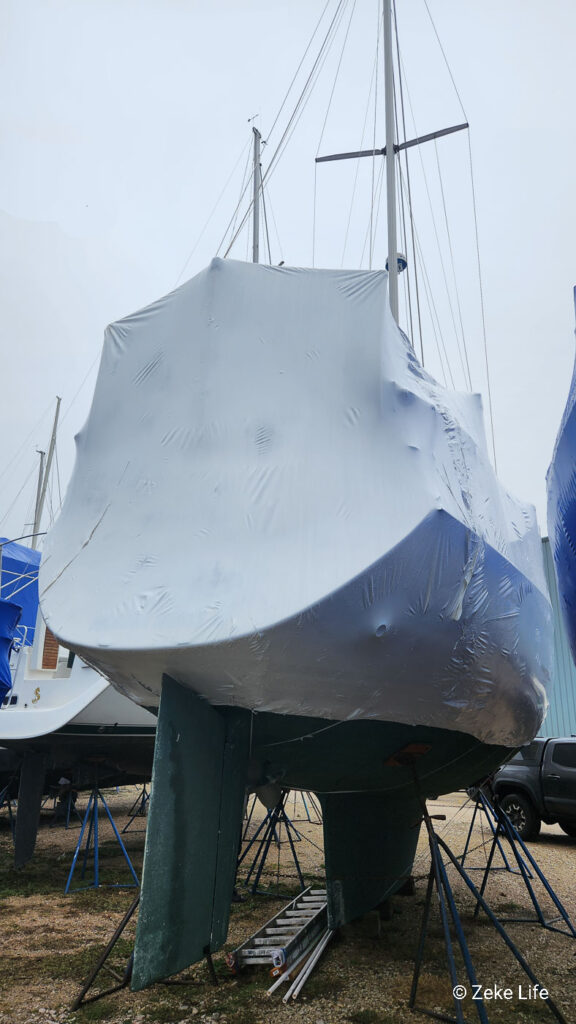
There will still be lake water in the incoming valve system that will freeze and shorten the life of the toilet. FYI, I read the instructions! 🙂
It just Stinks
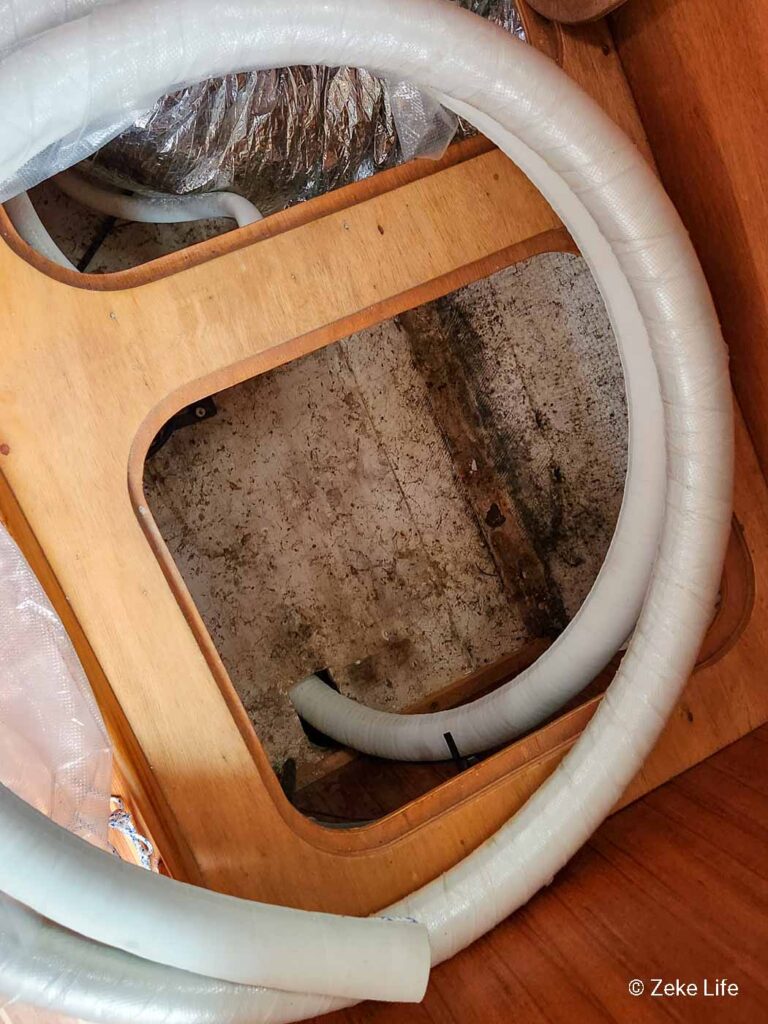
The second important aspect of our sanitation system onboard is the piping. The sanitation hoses are bombarded with transporting everything that goes into the toilet all the way to the holding tank.
Over time, these hoses become “permeated”, which is really just a nice word for they stink. If they stink, then the bathroom stinks, and the boat stinks … anything you bring on the boat begins to stink, and if you stay on the boat, YOU even start to stink!!!
So, for some reason, this project continued to rise to the top of our 2022 winter project list.
other critical components
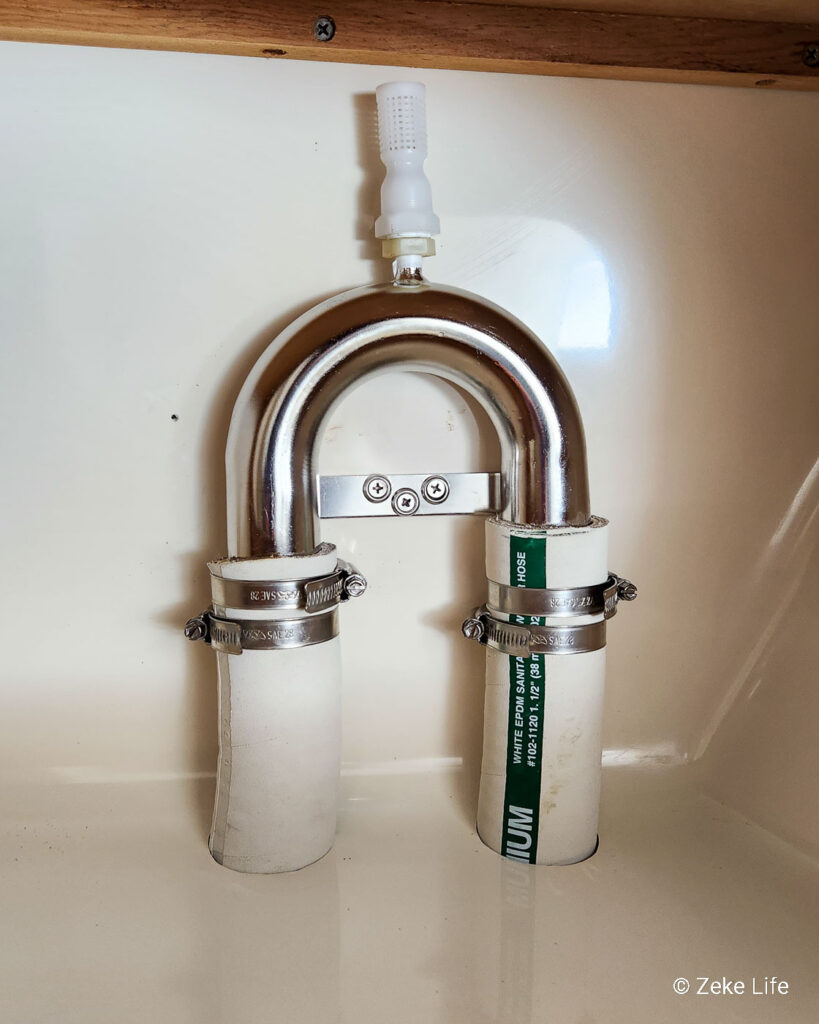
After replacing the sanitation hoses, there are a handful of other critical components in the sanitation system to consider that I will only make a brief note of that must be included in a retrofit.
The vented loop breaks the back siphon and protects the holding tank and any incoming water from backfilling into the toilet, creating a huge mess and potentially risking the boat sinking.
Hose clamps that are stainless, non-perforated and designed for the size and marine use were replaced and used throughout the project.
We also added a raw water strainer, which collects small debris, like duckweed, from making its way from outside the boat to the toilet and getting stuck – and now a whole other type of stink would occur.
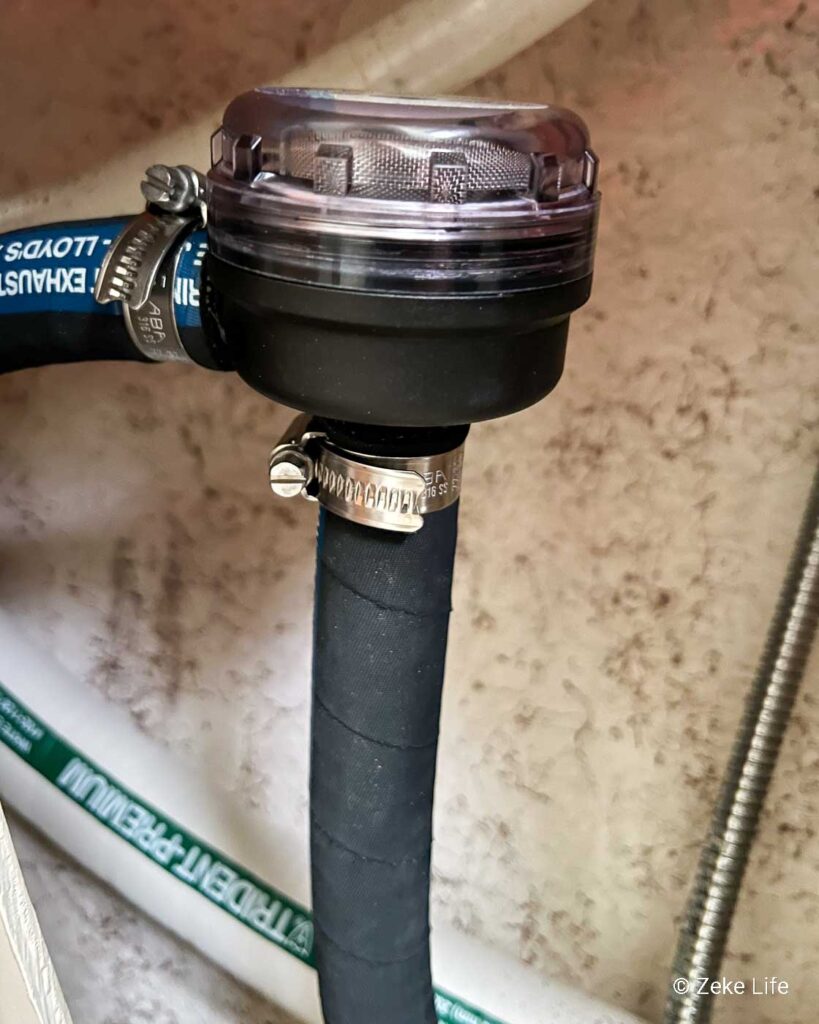
Did it work?
The results are not in yet. Winter is still holding on (at least for a few more weeks) but spring is fighting to thaw us out here in early March. This winter, we replaced both toilets, installed new sanitation hoses, new raw water hoses, new raw water strainers, and new vented loop breaker valves.
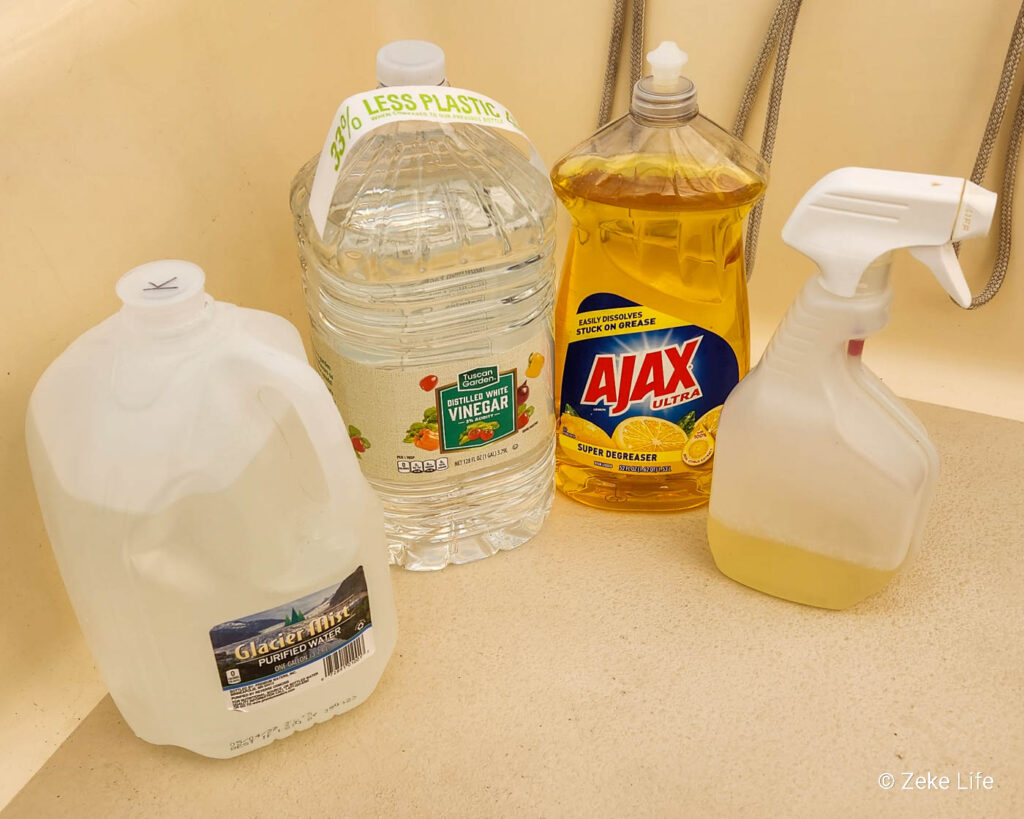
The other time consuming and uninteresting step in the project is that while all of these systems were removed, we cleaned behind, below and all around multiple times, because cleaning is not impossible but much more difficult when the toilets are installed.
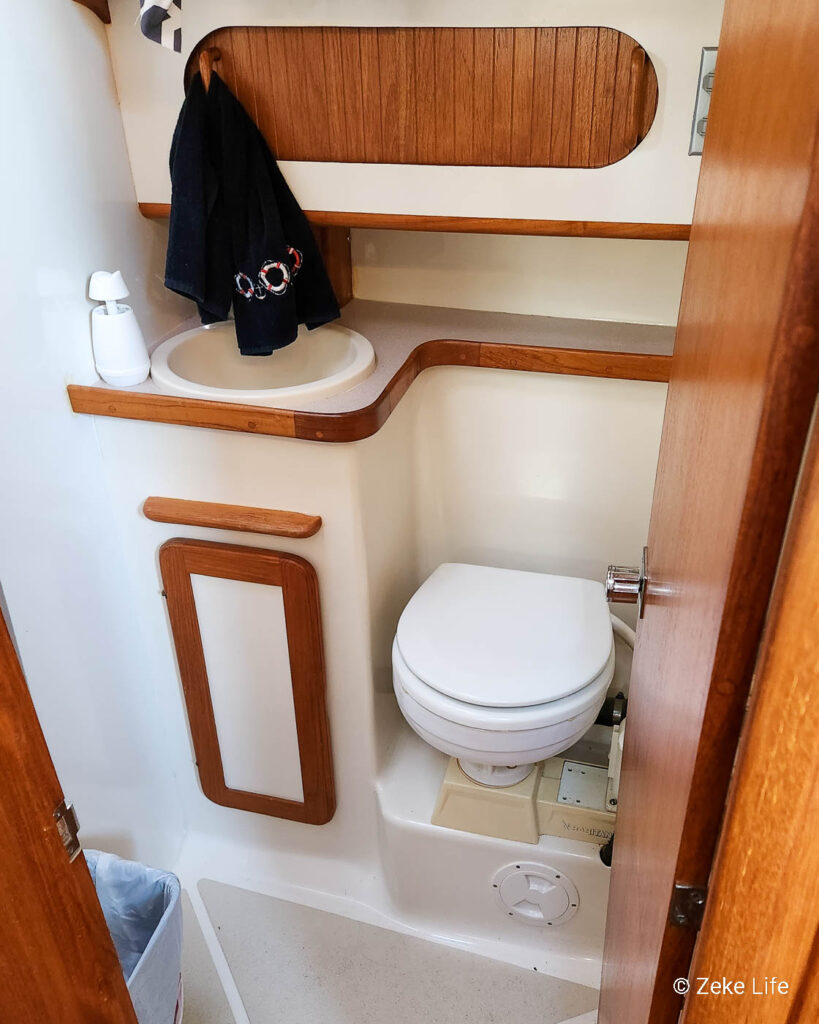
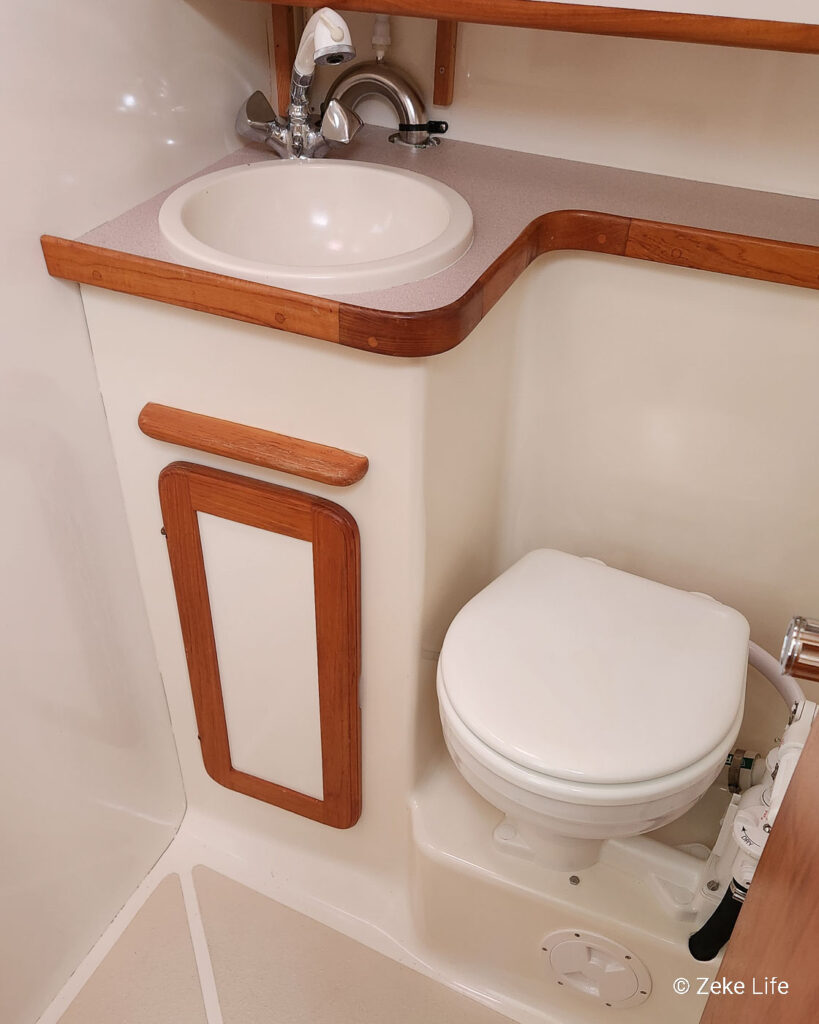
The aesthetic result asks the question, “What did you change?” The before and after result looks the same because we replaced everything like for like. But the answer to the real question, “Where did the smell go?” must be answered after warmer weather and water under the keel this spring! Please don’t stink! 🤞
Products Used
Raritan Ph Superflush Toilet W/Soft-Close Lid
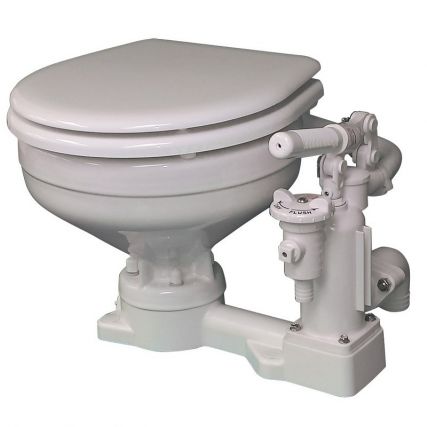
The newest generation of PHII – The PH pump used on the PH Superflush is a design that is timeless. The dual action pump is 66% larger in diameter than any competitive toilet on the market. Because the housing is larger it more easily moves more water in and out of the bowl meaning you spend less time pumping and more time enjoying your time on the water.
Available from:
Sanitation Hoses
1 ½” for waste lines
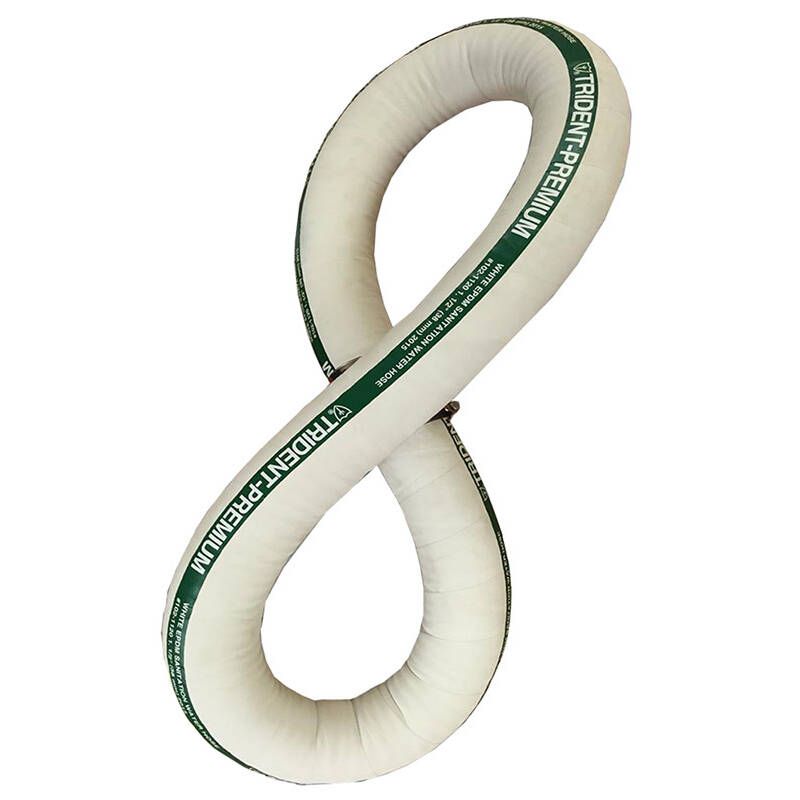
The Trident Sani Shield Sanitation Hose’s legendary odor free performance is the best on the market.
Available from:
¾” for incoming raw water lines
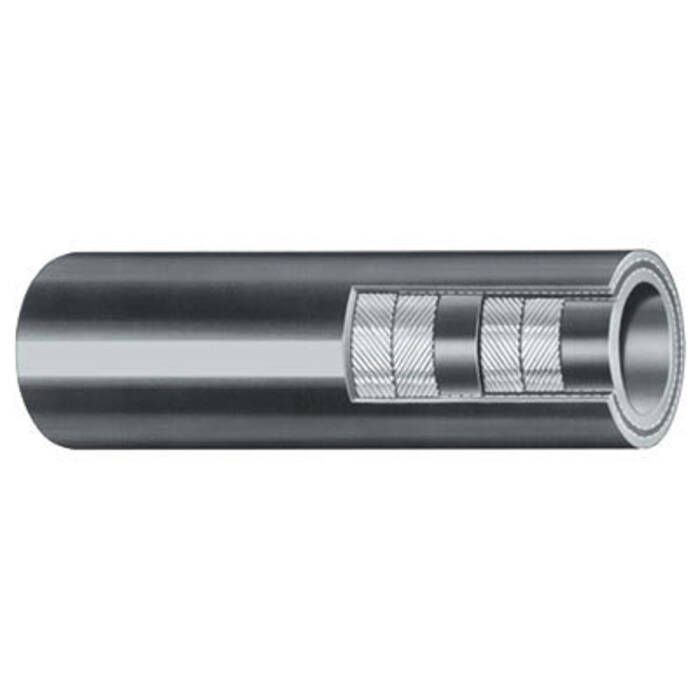
Trident Heavy Duty Water, Air, Drain and Heater Hose is designed to serve a variety of pressurized applications for water and air delivery.
Available from:
Raw Water Strainer
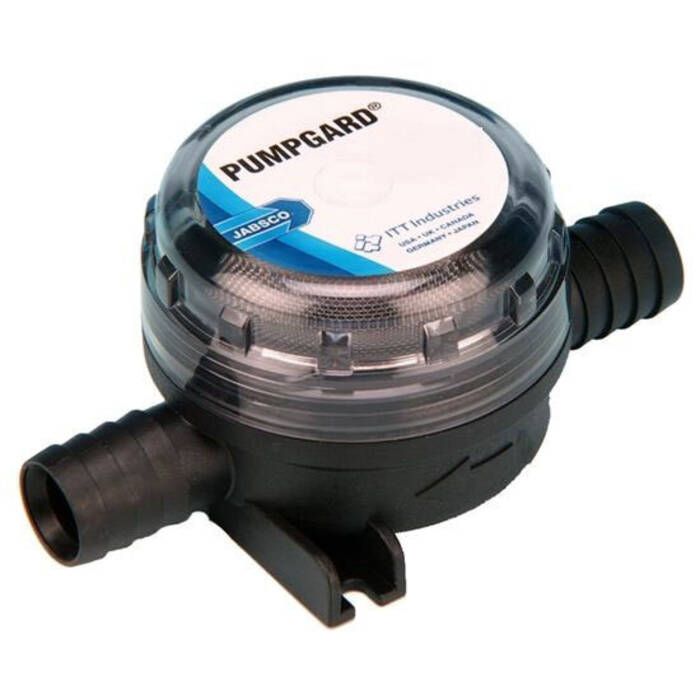
Jabsco Pumpgard In-Line Strainer
Prevents dirt and other particles from entering pump intake. Transparent housing for instant inspection. Quick in place cleaning of mesh screen.
Available from:
Hose Clamps
1 ½” for waste lines & ¾” For Incoming Raw Water Lines
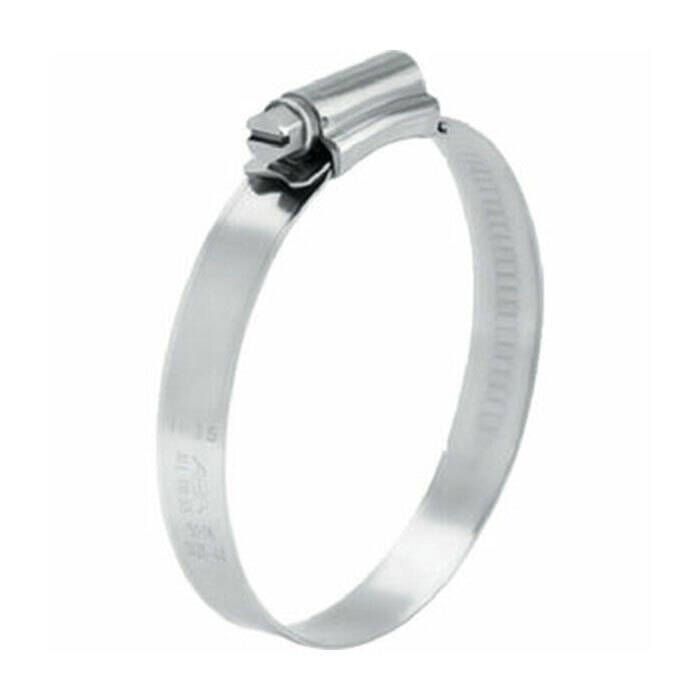
Scandvik SS ABA Hose Clamp
ABA 316 stainless steel clamps are the ideal choice for applications where premium corrosion resistance is required
Available from:
Vented Loop
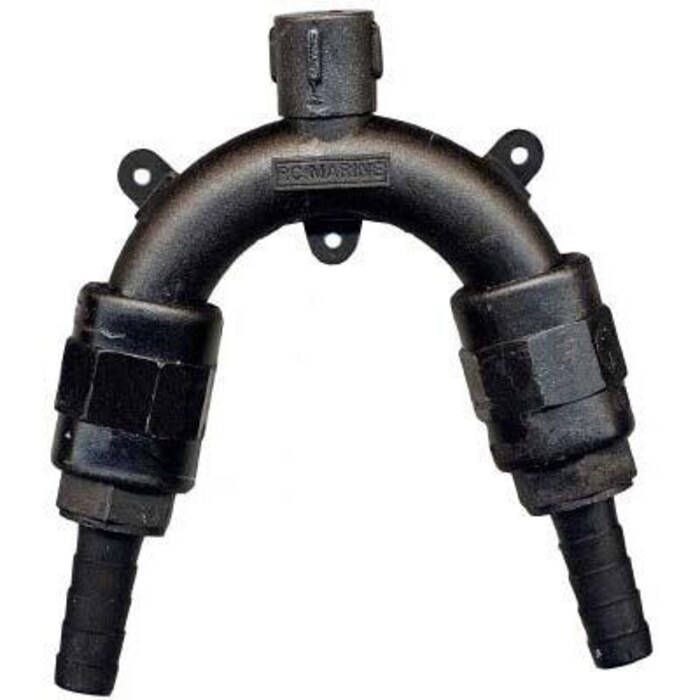
Vented loops are a vital component in any onboard plumbing system. Without them, the risk of flooding or sinking is greatly increased because water can be back siphoned into your boat from the outside. Back siphoning can occur through any onboard tank, engine, head or bilge system that utilizes a through-hull intake. Vented loops are designed to break-up any back siphon, keeping the boat high and dry.
Available from:
Tell us what you think
What do you think about our sanitation system project this winter? Do you have any tips or tricks you learned to ensure the longevity of these systems on your boat? We are new sailors and would love to hear from salty sea dogs.
Let us know what you think of our sailing adventures by sharing your feedback in the comments below. We’d love to hear from you!
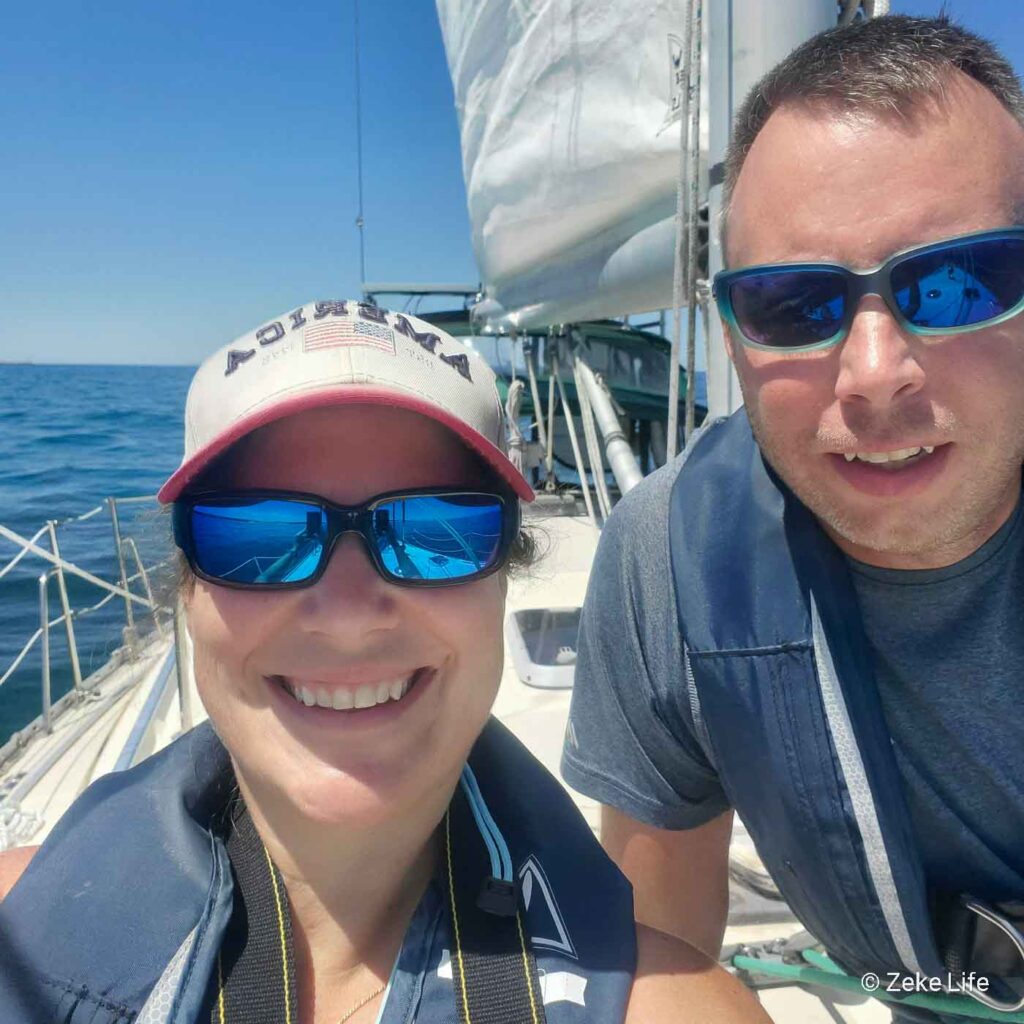
– Kyle from Zeke Life
Live like Zeke
You’re such a good boy!


